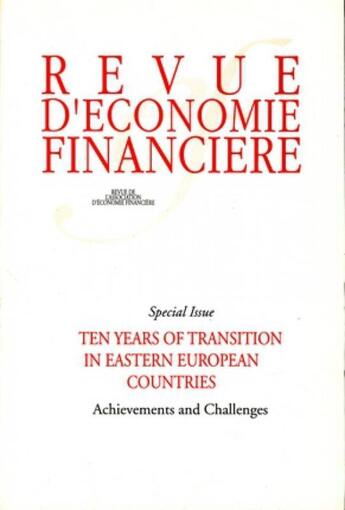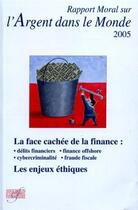-
Nombre de pages : (-)
-
Collection :
(-)
-
Genre :
Entreprise
-
Thème :
Entreprise
-
Prix littéraire(s) :
(-)
Résumé:
The fall of the Berlin Wall sets the stage for a process of unprecedented political and economic transformation in the countries of Central and Eastern Europe and the former Soviet Union. It is now ten years, and in some cases longer, since these countries started their transition from... Voir plus
The fall of the Berlin Wall sets the stage for a process of unprecedented political and economic transformation in the countries of Central and Eastern Europe and the former Soviet Union. It is now ten years, and in some cases longer, since these countries started their transition from collective ownership and central planning into private enterprise and the market system. Furthermore, ten of the Central European and Baltic countries have become candidates for accession to the European Union and are negotiating the conditions for entry. It is time therefore to take stock of the achievements, shortcomings, and challenges of the process of transition.
With the co-operation and support of the President of the European Bank for Reconstruction and Development (EBRD), Jean Lemierre, to whom we owe a special debt, and the Office of the Chief Economist of the Bank, the Revue d'Économie Financière has decided to mark these ten years of transition with a special publication. This volume is being published both in French and English in order to reach a wider readership, notably in the countries of Eastern Europe.
The transition from a planned to a market economy involves all encompassing and complex changes in both the organisation of economic activity and the behaviour of economic agents. Some analysts thought initially that privatising enterprises and liberalising prices would be sufficient to deliver this systemic transformation and to ensure sound economic performance. However, the experience of the last ten years has taught us that the process is far more complex. A vital additional ingredient for success is the establishment and effective adoption of the appropriate market institutions. In keeping with its tradition, the Revue d'Économie Financière focuses on the financial aspects of transition while not losing sight of the effects of transition in the real sector, which in this case are of particular significance.
This special issue regroups great authors and is introduced by Jean Lemierre, President of the EBRD, who details ten years of transition, and analyses challenges to complete transition from planned to market economy. The first part of this issue describes EU enlargement and integration into the world economy, is instrumental in determining the progress of transition. So, an interview with Commissioner Pedro Solbes Mira introduces this part explaining macroeconomic, financial and politic aspects of EU enlargement. The second part of this special issue presents the macroeconomic environment and the nature of transition. A third set of articles explores an essential aspect for the integration of accession countries into the EU: the choice of exchange rate regime and the transformation of Central Banks. Transition and the development of a market economy cannot be achieved without a properly developed and structured financial system. The fourth part of this issue is therefore devoted to the development of the financial sector in Eastern Europe. This special issue concludes with three articles exploring the economic and social aspects of transition.
Donner votre avis















